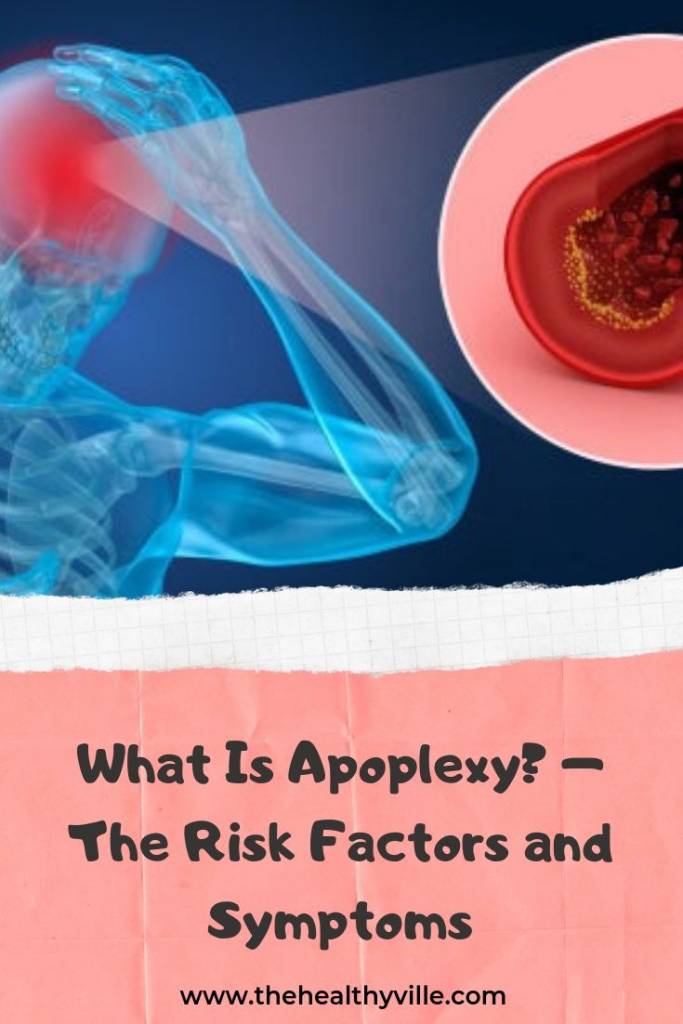Find out what is apoplexy, how to recognize its symptoms and what the risk factors are, in order to discover it on time, prevent it or treat it.
What is apoplexy? Apoplexy is another name for stroke.
Stroke is a sudden neurological syndrome that consists of a hemorrhage or loss of blood circulation in the brain.
When the blood supply does not reach the brain correctly, brain tissue dies. This results in a neurological deficit that can be a cause of disability or death.
Actually, the term apoplexy refers simply to bleeding or blood disruption in any organ. In this way, there are numerous apoplexies depending on the organ that they refer. However, when doctors use the word alone it usually refers to a stroke.
The prevalence of stroke is high, especially in elderly people. Therefore, it is important to know their symptoms and their risk factors.
What is apoplexy?
Currently, the terms of apoplexy, apoplexy and stroke are often used as synonyms. However, there are certain differences:
Stroke or cerebral infarction. It is a cessation of blood flow in the brain.
First, it may be caused by an obstruction in one of the blood vessels that supply the brain (ischemia). This is usually related to atherosclerosis problems.
On the other hand, it may be due to intracerebral hemorrhage. It is then a hemorrhagic stroke.
Apoplexy is an old term. It was used to call the suspension of some brain function. There is a functional apoplexy in which there are no structural alterations in the brain, as they occur in stroke; only similar symptoms occur, but without underlying anomalies.
Risk factors for stroke
There are numerous risk factors for stroke. On the one hand, there are non-modifiable risk factors, which include age, sex or family history.
After age 55, the risk of suffering from it is twice bigger with every 10 years that pass. In addition, there is a higher incidence in men than in women. It should also be noted that if a family member has suffered a stroke, it increases the possibility of it happening.
On the other hand, there are many factors that are modifiable:
- Arterial hypertension. It is the most frequent vascular disorder and its incidence also increases with age. The normal blood pressure figures are 130/80 mmHg. We must limit salt intake to 2 grams a day to better control our blood pressure and reduce the risk of stroke.
- Smoke. Tobacco links to a direct harmful effect on the arteries.
- Cholesterol. Cholesterol levels above 200 mg / dL are associated with atherosclerosis problems and with an increased risk of arterial obstruction. Therefore, it is essential to take care of the diet and reduce the consumption of fats, especially saturated fats.
- Sedentary life. The recommendations are, as a minimum, to walk half an hour a day, five days a week.
- Stress is also an important cardiovascular risk factor.
- Diabetes is also a cause, as well as having previously suffered from cardiovascular disease.
Symptoms of stroke
Symptoms vary depending on the affected brain area. They can be sensory, motor or mixed. The most common are:
- Dysarthria It consists of a difficulty to speak or understand the language.
- Hemiparesis and hemiplegia. It is the loss of strength or paralysis in the arm and leg on the same side of the body and a part of the face.
- Balance and coordination problems. There is also dizziness.
- Difficulty walking.
- Sudden and intense headache. It can be accompanied by loss of vision.
However, there are situations in which the painting is of low intensity and duration and goes unnoticed. You may only have subtle muscle weakness, small episodes of amnesia or disorientation.
If any of these symptoms occurs, it is important to go to the emergency room. Stroke is a time-dependent pathology that you must treat as soon as possible.
In conclusion
Before a stroke, it is vital to go to a hospital early to start treatment as soon as possible, since, during the first hours, it is easier to recover the affected brain functions.
Don’t forget to SHARE what is apoplexy with your friends and family on your social networks!

